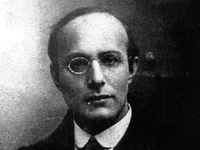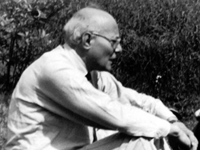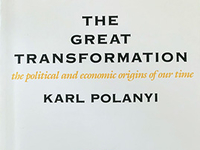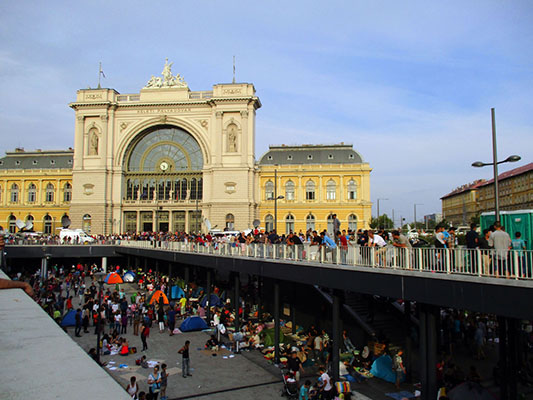The pendant to Karl Polanyi’s The Great Transformation, published one month earlier in March 1944 in London, is Friedrich Hayek’s The Road to Serfdom. Neither can be classified as a work of professional sociology or social science. These are popular books by scholars aiming to reach a wide audience. But while Hayek’s book achieved its goal very rapidly (thanks in part to an abridged version published in the US magazine Reader’s Digest), Polanyi’s much longer text enjoyed only modest sales. Although both Polanyi and Hayek are rooted in Austrian economics they differ hugely in style and substance. Polanyi plunges into the details of British economic history and colonial ethnography to conclude with arguments for democratic socialism. Hayek’s work is more abstract and shrill. He views the economic doctrines of liberalism, held by Polanyi to be responsible for the catastrophes of fascism, as the key to individual liberty as well as economic efficiency. For Hayek, socialist planning leads to totalitarianism. He recommends free markets with minimal state intervention. This contribution explores not the complex intellectual history that preceded the 1944 publications but the pertinence of these contrasting economic philosophies for what followed, and hence for the state of world society today, 75 years later.
The rise and fall of embedded liberalism
The first postwar decades are commonly considered to be an era in which the economy is “re-embedded” in society (to use the familiar metaphor of The Great Transformation). The tensions of the Polanyian “double movement” (on the one hand, the penetration of the principle of the market, and on the other, the “self-protection” of society) are mitigated by Keynesian principles of economic management in order to maintain high employment and consolidate welfare states. The socialist Karl Polanyi was not impressed by these compromises, not even by the strong welfare states of Scandinavia. Nevertheless, the mixed economies of this period and the financial system negotiated at Bretton-Woods enabled liberal democracies to prosper in this generation.
These developments were undermined by hydrocarbon politics and the collapse of Bretton-Woods in the 1970s. By the 1980s, President Reagan and Prime Minister Thatcher (quoting Hayek as her guru) were attacking the pragmatic balance of embedded liberalism and proclaiming instead the virtues of the free market. Neoliberal dogmas were disseminated globally following the collapse of the Soviet bloc. With the demise of central planning, radical privatization and marketization led to extreme dislocation. Most postsocialist Eastern European states were eventually admitted to the European Union. The new elites of the East joined the old elites of the West to cast the social chapter of the Treaty of Maastricht to oblivion. The creation of the euro ensured that, as the dominance of the principle of the market induced ever greater mobility of capital and labor, earlier ideals of “social Europe” were now jettisoned. Austerity responses to the international financial crisis that began in 2007 have once more demonstrated the contradictions of a capitalism that appears increasingly disembedded.
Institutionalized markets and populist politics
Whether it be a decision to save or to consume, to migrate in search of higher wages or to accept what is available in one’s Heimat, economic life always plays out in contexts that are structured both socio-culturally and institutionally. The metaphor of disembedding cannot be interpreted too literally: we need to scrutinize what Polanyi termed “instituted process.” Close inspection reveals that the regime of free markets depends critically on strong states to defend property rights and enforce the interests of capitalists generally. If Polanyi were writing today, he would probably pay attention to the ways in which the powers of even the strongest states have been subverted by transnational corporations, astutely avoiding taxation and accountable only to their own shareholders. He would be shocked by the way in which neo-patrimonial regimes, notably that in his homeland, Hungary, manipulate institutions (such as the mechanisms of the European Union) not for pragmatic planning to serve the interests of their populations but to cement links of clientelistic dependency within a quasi-monopolistic governing party.
The new institutionalization of the economy is accompanied by an alarming rise of “populist” politics around the world. Leaders such as Orbán in Hungary or Trump in the USA are calling the basic compatibility of capitalism and democracy into question. In this conjuncture, Karl Polanyi’s analysis of the tensions of the double movement is prescient. When a society such as Hungary, which had been pursuing rather successful experiments in “embedded socialism” from the mid-1960s onwards, is abruptly exposed to the winds of global laissez-faire, it responds by seeking to defend itself, by reasserting values that appear to be threatened in the new global marketplace. In practice, this has meant camouflaging new class divisions by whipping up ethno-national sentiment. While Roma and Jews are the familiar scapegoats within the country, Brussels (the seat of the neoliberal EU) has replaced Moscow (the seat of the old system of central planning) as the primary external enemy. The details may differ but the populist nexus is one that Polanyi would have recognized, given the similarities to the roots of European fascism.
The Great Transformation is the definitive analysis of where the anti-socialist, laissez-faire dogmas of The Road to Serfdom lead. Both books have been reprinted many times and widely translated, but Polanyi’s message has never been compressed into a Reader’s Digest format. Sales of Hayek have always outstripped sales of Polanyi and continue to do so. Above all, in the Anglo-Saxon countries, 30 years after the end of the Cold War, the need to demonize socialism is a habit that is hard to shake off. Karl Polanyi offers a comprehensive alternative to the simplistic notion that the spontaneity of free markets is the best guarantee of individual liberty. The most important question of our time is whether the present crisis of Hayekian ideology can be resolved by a further revival of Keynesian liberalism, or whether this really is an “endgame” for capitalism. The optimist Polanyi would hope the latter.
Chris Hann, Max Planck Institute for Social Anthropology, Germany <hann@eth.mpg.de>






















